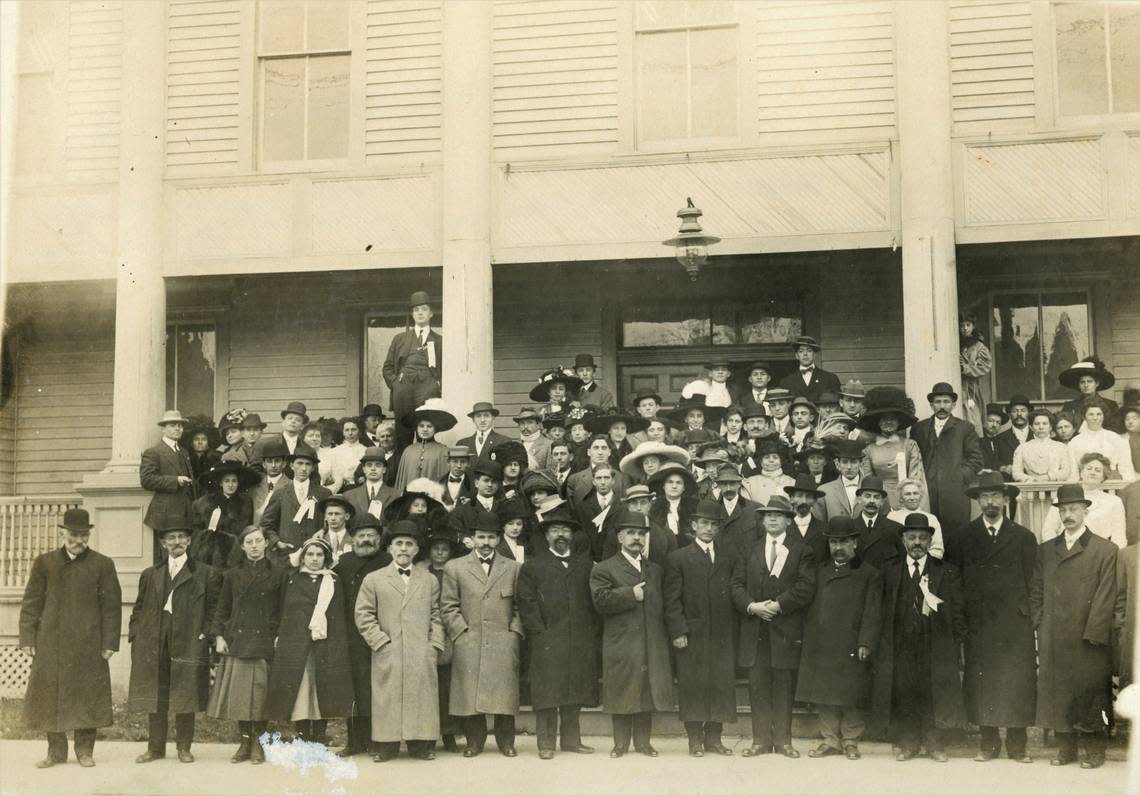Israel was formed 75 years ago. Here’s how Jewish people in Fort Worth celebrated

Few among us can recall a time when there was no country of Israel. Its creation began with a United Nations vote Nov. 29, 1947, to partition British-controlled Palestine into two states — one to be governed by Jews and the other by Arabs. Thirty-three nations voted yes. Thirteen voted no. Ten abstained.
Five-and-a-half months later, when Britain withdrew its troops from the territory, the State of Israel declared its independence. The date was Friday, May 14, 1948 — the fifth day of the Hebrew month of Iyar on the Jewish calendar. That day, 75 years ago, a new chapter of Jewish history began.
In Fort Worth, the Texas Jewish Post, headquartered on the South Freeway, printed an eight-page EXTRA edition with a banner headline that declared, “The Land of Israel is Reborn.”
A page-one FLASH reported that President Truman had recognized the new state. On an inside page, WBAP radio announced a special broadcast, “Israel Speaks,” guest-starring local rabbis.
A community celebration for Jews and Christians was held mid-week in the McLean Junior High School auditorium. There was standing room only as a choir sang Israeli folk songs in Hebrew. The emcee was Rabbi Isadore Garsek of Congregation Ahavath Sholom. The two featured speakers were Rabbi Samuel Soskin of Beth-El Congregation and attorney Sproesser Wynn, a congregant at University Christian Church, who had asked the Texas Legislature to recognize the new state.
As the speakers stressed the quest for peace in Palestine, the mood turned from celebratory to solemn, for violence was raging in the Holy Land. Soskin noted that statehood was only the “initial fulfillment of a dream.”
In Fort Worth, organized advocacy for a Jewish homeland had begun 48 years earlier with a grassroots group called “Hovevei Zion,” Hebrew for “lovers of Zion.” When the Texas Zionist Association (TZA) formed on Dec. 31, 1905, Fort Worth was among six cities in the confederation. The others were Austin, Dallas, Houston, San Antonio and Waco.
Annually, over the New Year’s holiday, the TZA convened in member cities that grew to include Breckenridge, Brenham, Galveston, Corpus Christi, Corsicana, Kilgore, Laredo and Terrell. Zionist clubs across the state chartered passenger cars for the train trip to the annual gathering. Families arrived with children to enjoy a blend of entertainment, American patriotism, and oratory about the pros, cons, and the likelihood of a Jewish homeland on ancient soil in the Middle East.
When the TZA gathered in Austin in 1912, Gov. Oscar Collquit addressed the delegates who held an evening session on the floor of the Texas Senate chambers. The room was patriotically decked with American, Lone Star, and Zionist flags. The year before when the group met in Houston, a group photo was printed in the news columns of the Houston Post.
At the TZA’s second annual convention over the New Year’s holiday in 1906-1907, delegates gathered in Fort Worth. They elected as statewide president Joseph Jasin, the local Reform rabbi at Beth-El. Jasin had initially been indifferent toward Zionism. After attending scores of meetings, he became so passionate that he edited the TZA newspaper, The Jewish Hope, published for two years and printed in Waco.
The year the Fort Worth rabbi was elected TZA president, the group photo conveyed a convivial air. A professional photographer posed the attendees on the steps of a wide, wooden porch outside a building that looks like a social hall. Male delegates wore ribbons on their lapels. Many female delegates wore wide-brimmed hats decorated with flowers. They looked comfortably American and middle class. To them, Zionism meant a homeland for oppressed Jews fleeing antisemitism, not for themselves. They had found a haven in Texas.
Exhibit, lunch planed for Israel’s jubilee
To mark Israel’s jubilee anniversary, the Fort Worth Jewish Archives is sponsoring a month-long exhibit, “Deep in the Heart: Israel at 75.”
The exhibit at Congregation Ahavath Sholom, 4050 S. Hulen, opens at 12:30 p.m., April 30, with a birthday party and Israeli luncheon sponsored by the Jewish Federation of Fort Worth and Tarrant County.
Preregistration for the lunch is online at www.tarrantfederation.org.
The Israel exhibit remains open April 30 until 4 p.m. Due to heightened security, visitors throughout the month of May must send an email to info@ahavathsholom.org to arrange a guided tour.
Hollace Ava Weiner, volunteer director of the Fort Worth Jewish Archives, collaborated on this column with Naomi Rosenfield, a former director of the Jewish Federation of Fort Worth and Tarrant County.

